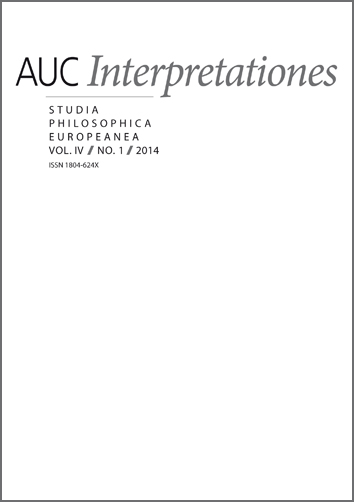Con-tangence et archi-facticité. Jacques Derrida et Didier Franck autour d’Edmund Husserl
Con-tangency and archi-facticity. Jacques Derrida and Didier Franck around Edmund Husserl
Author(s): Masumi NagasakaSubject(s): Metaphysics, Contemporary Philosophy, Structuralism and Post-Structuralism, Phenomenology
Published by: Univerzita Karlova v Praze, Nakladatelství Karolinum
Keywords: Con-tangency; archi-facticity; Jacques Derrida; Didier Franck; Edmund Husserl;
Summary/Abstract: The aim of my paper is to articulate the intersection of two different readings of Husserl’s phenomenology proposed by Didier Franck and Jacques Derrida. In his first work on Husserl, Flesh and Body (1981), Franck translates the notion of Leib as flesh (chair), stressing the difference between flesh and body (corps/Körper). This work, apparently influenced by Merleau-Ponty and Levinas, and seeking to provide a solution to the aporias of Husserl’s phenomenology, was a direct response to Derrida’s reading of Husserl in the 1960s. In the text, Franck proposes to depart from the ‘tactuality’ of flesh that grounds all objectivity. Thus, he conceives the constitution of the Other as emerging through the contact of the subject with the Other, or ‘con-tingency’, which at the same time signifies con-tangency as a mutual touching and contingency as an accidental archi-facticity. Derrida replies to Franck’s reading in a chapter entitled ‘Tangent IV’ in his work On Touching – Jean-Luc Nancy (2000). Therein, Derrida insists on the necessity of untying con-tangency and contingency as archi-facticity. By this, he means that there are various contingent archi-facts which are not concentrated in mutual touching. In another chapter entitled ‘Tangent II’, he analyses passages from Husserl’s Ideen II, especially those used by Franck to support his argument. Derrida draws the conclusion that even a touching needs a kind of non-contact, or more properly, a non-coincidence of what touches and what is touched – what he calls the spacing of a non-presence or the very possibility of phenomenology in its impossibility. Franck and Derrida therefore suggest two different approaches towards the aporias of Husserlian phenomenology: the former proposing to find a solution to the aporia, the latter to live in the experience of the aporia.
Journal: Acta Universitatis Carolinae Interpretationes
- Issue Year: 4/2014
- Issue No: 1
- Page Range: 167-185
- Page Count: 19
- Language: French

